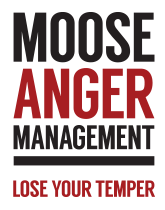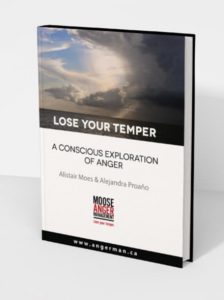Five Ways Anger Helped Me as a Parent
If a parent tells me that they never get angry, I feel for them. Either they don’t feel much emotion, or they are getting walked over on a daily basis. Anger can lead us to be wise, thoughtful, focused and determined, or it can lead us to be reactive, childish and hurtful.
Five Ways Anger Helped Me
- Anger helped me speak up at a meeting with school counsellors and staff after a boy in grade nine seriously mistreated my daughter. They suggested that my daughter be moved to another class. I made it very clear that moving the boy to another class was the proper thing to do instead of further victimizing the target of his mistreatment. I spoke up with emotion and conviction, but without hostility.
- Anger at myself helped me realize that I had failed my kids and reacted unconsciously, reflecting my own experience of being parented. The anger was at my lack of awareness when following in the footsteps of my father and acting like what I said or did wasn’t really important. That anger fueled me to step more deeply into my own shame and connect with my core values of compassion, support and love. It allowed me to act from that place rather than a less responsible version of myself.
- Anger leads me toward awareness and accountability. All emotions can turn into something healthy, or something unhealthy. Anger can lead me to act like a father who speaks up wisely, and even sometimes with some volume, but without hostility. Its presence moves me to look more deeply at myself and at what is going on, especially if I have mistreated someone.
- When I look behind the anger I am able to connect more deeply with the pain, loss, sadness, loneliness or shame and bring awareness to this. Here is where my power is. It is just power over myself. If I can wisely and vulnerably find a way to express this, the anger will turn into growth and connection.
- Anger connects me to love. If I didn’t love someone I would not be so deeply moved by their actions. Because I love someone deeply, fear is close by. When anger shows up, it reminds me to stop and gain perspective, sometimes even laugh at how a younger more childish part of me wants to have a temper tantrum. I can love that younger part in me, and then love my children more authentically.
- Anger connects me to my own physicality, which is where my emotional history is stored. If I notice that my response is disproportionate to the current event, I can reflect both on the current physical location of my anger, such as a constriction in my chest, and consider where and when a similar event like this occurred in my life. By stepping back and gaining perspective, anger can lead to awareness. Am I repeating old patterns? Is this response familiar? When have I reacted like this before? What was the outcome the last time I acted like this? What outcome would I prefer?
When thinking of your own anger, consider what you would like your kids to learn about anger. How would you like them to remember their parent’s anger? What did you learn about anger growing up? What is your example going to teach your children?
We are all going to make mistakes. My goal is to learn from the mistakes I make, by speaking openly, vulnerably and responsibly about how I have acted. I know if I have the courage to face what I have done with curiosity, interest and openness, I can learn from the mistake, and repeat it less often. We aren’t after perfection. I want to make new and different mistakes, rather than the same ones over and over again. When you learn from your anger, future generations can learn to express anger in a healthy manner.
This article was originally published on the BCCF website. Written by Alistair Moes, parent of two children.





